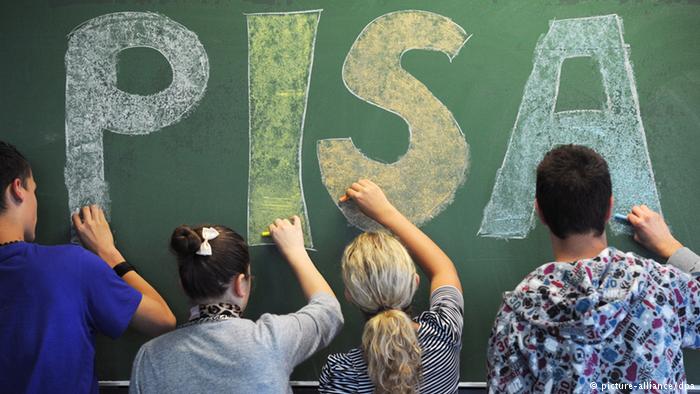
(Photo: China Daliy)
Chinese students ranked first in the OECD's PISA tests last year, which shows China's basic education has improved. However, education resources still need to be better balanced nationwide. China Daily writer Wang Yiqing comments:
According to the results of OECD's Program for International Student Assessment in 2018, in three core academic subjects, reading, science and mathematics, the average score of 15-year-old Chinese students from four cities and regions ranked first among 79 countries.
The PISA tests, which are held every three years, examines what students know in the three core subjects and what they can do with what they know, providing a comprehensive and rigorous international assessment of students' learning outcomes. The 2018 PISA tested about 600,000 15-year-old students in total from 79 high- and middle-income countries globally. The Chinese students were from Beijing, Shanghai, and Jiangsu and Zhejiang provinces.
Chinese students' test results show China's advantage in basic education and Chinese students' strong competitiveness among the young students all over the world. In particular, the result reflects the rapid progress of China's basic education over the past three years.
Chinese students from Beijing, Shanghai, and Guangdong and Jiangsu provinces participated in the PISA tests three years ago, but their performance was disappointing. Chinese students' average scores in mathematics and science in 2015 ranked sixth and tenth respectively, and it was much lower for reading.
The pleasing 2018 PISA result shows quality education that aims to improve the all-around competence of Chinese students, in particular their independent thinking and ability to use what they learn to solve problems, has made great achievements in recent years.
But we should also be aware that the PISA result doesn't reflect the whole picture of China's basic education, because the students being tested are all from developed regions in China that have high education standards. The quality of education varies in China among various regions. In some less-developed remote regions, basic education lags far behind that of the major cities. Quality and balanced education is a cause that we should make unremitting efforts for.
Meanwhile, we should also notice that the 2018 PISA result reflects some of the problems and difficulties Chinese students face, such as heavy schoolwork level and less satisfaction compared with students from other countries. In the future, we should make up for the loopholes in compulsory education to improve the overall level of China's basic education.


